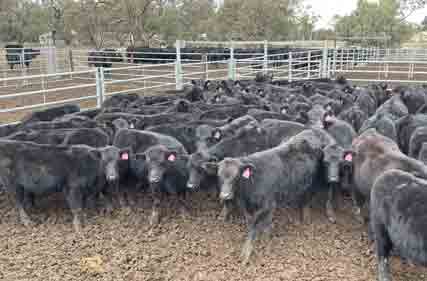
The rebuild is expected to continue into 2022, as the BOM prediction of a La Niña will ensure that ground water supplies are available.
With above average rainfall predicted for all major cattle regions over the next three months and increased rainfall in northern Australia, pasture growth is expected to surge and strengthen the national herd rebuild into 2022, according to Meat & Livestock Australia’s (MLA) latest Australian Cattle Industry Projections.
MLA’s Market Information Manager, Stephen Bignell, said good seasonal conditions across the eastern states and southern Western Australia continued to underpin demand and confidence in the sector.
“The cattle market continues at historic highs, with restocker and feeder demand fuelling record prices at the saleyard, which is flowing along the supply chain,” Mr Bignell said.
“The extent of rain post-drought has resulted in slaughter being revised down to 6 million head for 2021, the lowest level in 36 years. While carcase weights are still expected to reach record levels, they have been revised slightly down to 308kg, bringing overall production estimates to 1,848 tonnes carcase weight (ctw).
“Seasonal conditions started to improve in autumn 2020, and by the end of 2022 calves born since this time are expected to hit the market which will increase the supply of cattle available.
“The rebuild is expected to continue into 2022, as the BOM prediction of a La Niña will ensure that ground water supplies are available. The favourable harvest conditions of 2020 and 2021 have also allowed Australia a feed grain buffer should the 2022 season deteriorate.”
Mr Bignell said Australia was a leading exporter of beef globally, with Korea remaining a strong and reliable market, and Japan continuing to purchase the most Australian beef.
“Australia has exported 660,568 tonnes of beef for the year-to-date, with 17% lower volumes for the year-to-September. Lower export volumes have been the result of both supply and demand factors. Most key export markets have fallen compared to 2020 volumes except for South Korea, which has held steady at a 2% increase this year,” Mr Bignell said.
“Strong consumer purchasing power and sophisticated retail, foodservice and food manufacturing sectors, combined with a positive image of Australia as a trusted source for tasty and high quality will continue to underpin long-term growth for Australian beef exports to Japan.”
View a full copy of MLA’s November 2021 Beef Projections here.
